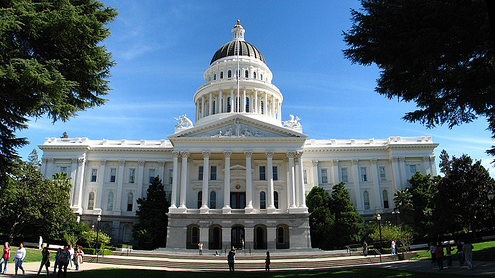Split Roll Proposal Bad for Jobs and the Economy
The California League of Women Voters and other advocates of a split-roll property tax system filed an initiative December 15 that would increase property taxes on California employers by an estimated $11.4 billion per year. A tax increase of this size will lead to higher consumer prices for goods and services we use every day. […]
Board of Equalization Overhaul Hurts Taxpayers
Public trust in government is eroded every time non-budgetary policy changes are rammed through the Legislature under the cover of the state budget process. Proposed budget trailer bills (AB 102 and SB 86) amount to untested structural changes that will hinder the Board of Equalization’s ability to continue collecting one-third of the state’s annual revenue. […]
There’s No Debate: Legislative Analyst’s Fact-Checker Debunks Claims Made by Split-Roll Proponents

It is well known that June 6, 1978 – the day that California voters overwhelmingly approved Proposition 13 – is a key date in the history of tax policy in California. Now we can add another important date to our tax history calendar: September 19, 2016, the day that the nonpartisan Legislative Analyst’s Office debunked […]
CalTax Report Identifies $132 Billion in Tax and Fee Increases Introduced in Legislative Session
As the Legislature nears the June 15 deadline for sending a budget bill to the governor, the California Taxpayers Association released “Tax Watch,” a report detailing $132 billion in new taxes and fees that have been introduced by lawmakers so far during this legislative session. The report includes every bill introduced so far this session that would […]
CalTax Releases Report on Proposition 13: Data Shows Property Tax Burden Has Not Shifted to Homeowners
On the eve of the 35th anniversary of the voters’ approval of Proposition 13, the California Taxpayers Association released a research report examining the effects of the landmark initiative, and presenting empirical evidence that there has been no shift of the property tax burden from businesses to homeowners. Proposition 13 Revisited: A look at California’s […]
A Guide to Improving Government Efficiency

The California Taxpayers Association just released a report that identifies more than $7.3 billion that state and local government can save, or obtain from revenue enhancements, if proactive steps are taken to address inefficiencies and reform existing programs. Government Cost Savings Report: How State and Local Government Can Increase Efficiency and Become More Effective is […]
Ballot Measure on Cancer a Symptom of Dysfunctional State
Crossposted on Los Angeles Business Journal Increasing funding for cancer research is a laudable goal. We all have been touched by this terrible disease, and must continue working for a cure. But cancer research is too important to be left in the hands of an unchecked bureaucracy created by a career politician, run by unelected […]
Give the California Economy a Chance to Flourish Instead of Raising Taxes
Politicians are looking for ways to raise our taxes. Despite stubbornly high unemployment, a continually weak economy and an already crushing tax burden, they are studying every which way to increase taxes. There are signs – small, almost imperceptible signs – that the California economy is perhaps ready to start making some progress. The statewide […]
Spending Limit Act Would Put State on Road to Fiscal Health

Crossposted in the Sacramento Bee This article was also written by Jon Coupal and Joel Fox Over the past several weeks, ballot measures have been proposed or filed that would impose tens of billions of dollars in new or higher taxes on California families and small businesses. These proposals range from increasing the existing sales, […]
Tax or Fee? Voter-Approved Tax Test Provides the Answer
Stop hidden taxes! That was the clear and compelling message
that California voters sent to lawmakers with passage of Proposition 26 in
November. This measure was designed to halt the practice of governments imposing
new taxes without the constitutionally required vote, by falsely labeling them
as "fees," "surcharges," and with other deceptive names.
Under Proposition 26, all proposed new charges by state and
local governments must undergo a tax test to determine if they are legitimate fees
that require only a majority vote of the Legislature or approval of a local
government body for implementation, or are actually taxes that require a
two-thirds vote of the Legislature or a vote of the people at the local level.
Proposition 26 establishes five criteria for this tax test.
For example, if a charge benefits those who don’t pay for it, it is a tax.

